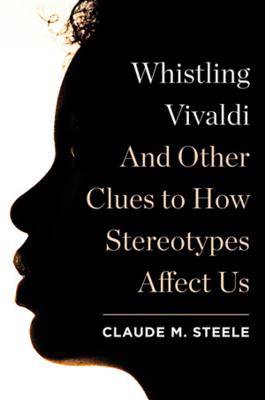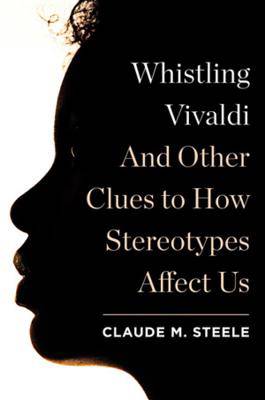
Bedankt voor het vertrouwen het afgelopen jaar! Om jou te bedanken bieden we GRATIS verzending (in België) aan op alles gedurende de hele maand januari.
- Afhalen na 1 uur in een winkel met voorraad
- In januari gratis thuislevering in België
- Ruim aanbod met 7 miljoen producten
Bedankt voor het vertrouwen het afgelopen jaar! Om jou te bedanken bieden we GRATIS verzending (in België) aan op alles gedurende de hele maand januari.
- Afhalen na 1 uur in een winkel met voorraad
- In januari gratis thuislevering in België
- Ruim aanbod met 7 miljoen producten
Zoeken
€ 66,95
+ 133 punten
Uitvoering
Omschrijving
Through dramatic personal stories, Claude Steele shares the experiments and studies that show, again and again, that exposing subjects to stereotypes--merely reminding a group of female math majors about to take a math test, for example, that women are considered naturally inferior to men at math--impairs their performance in the area affected by the stereotype. Steele's conclusions shed new light on a host of American social phenomena, from the racial and gender gaps in standardized test scores to the belief in the superior athletic prowess of black men. Steele explicates the dilemmas that arise in every American's life around issues of identity, from the white student whose grades drop steadily in his African American Studies class to the female engineering students deciding whether or not to attend predominantly male professional conferences. Whistling Vivaldi offers insight into how we form our senses of identity and ultimately lays out a plan for mitigating the negative effects of "stereotype threat" and reshaping American identities.
Specificaties
Betrokkenen
- Auteur(s):
- Uitgeverij:
Inhoud
- Aantal bladzijden:
- 258
- Taal:
- Engels
- Reeks:
Eigenschappen
- Productcode (EAN):
- 9780393062496
- Verschijningsdatum:
- 12/04/2010
- Uitvoering:
- Hardcover
- Formaat:
- Ongenaaid / garenloos gebonden
- Afmetingen:
- 168 mm x 213 mm
- Gewicht:
- 403 g

Alleen bij Standaard Boekhandel
+ 133 punten op je klantenkaart van Standaard Boekhandel
Beoordelingen
We publiceren alleen reviews die voldoen aan de voorwaarden voor reviews. Bekijk onze voorwaarden voor reviews.









